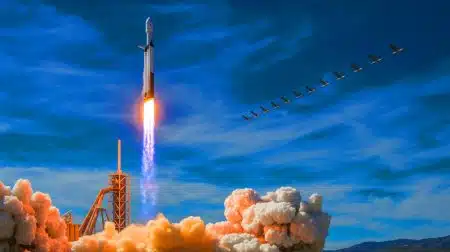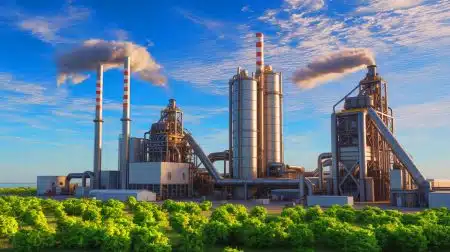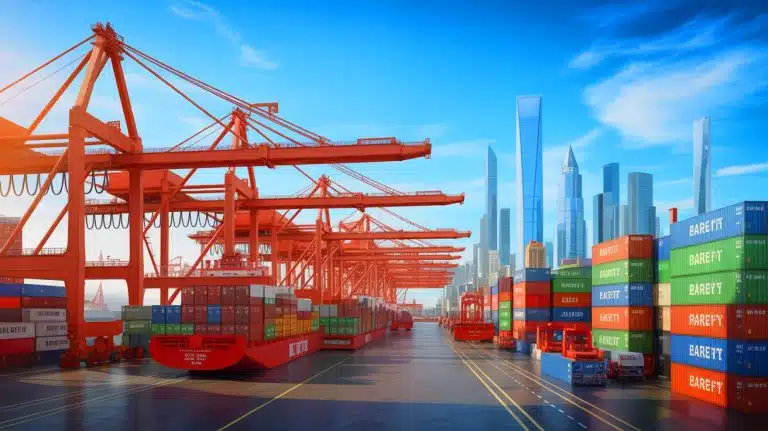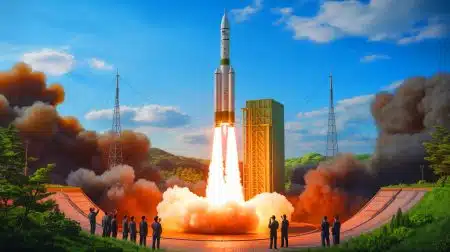| IN A NUTSHELL |
|
In the intricate web of global trade, few resources hold as much strategic importance as rare earth elements. These minerals, essential for modern technology, have become a focal point in the economic rivalry between China and the United States. As the leading producer and refiner, China wields significant influence over the supply chain, a fact underscored by recent tensions. When Beijing curtailed exports in April, it sent shockwaves through various industries reliant on these critical materials. This move highlighted the vulnerability of Western economies, igniting concerns over potential production halts in sectors ranging from automotive to electronics.
The Strategic Importance of Rare Earths
Rare earth elements, despite their name, are relatively abundant in the Earth’s crust. However, their extraction and refinement are complex and environmentally taxing. These minerals are indispensable in numerous high-tech applications, including smartphones, electric vehicles, and military hardware. The automotive industry, for instance, relies on them for critical components such as electric motors and catalytic converters. In the electronics sector, rare earths are key to manufacturing semiconductors and other essential parts.
China’s dominance in the rare earth market grants it considerable leverage. With 70% of global production and 99% of processing capabilities, Beijing can significantly impact international supply chains. This control is not just economic but also geopolitical, as rare earths are vital for national security and technological advancement. Recent export restrictions by China have underscored this power, prompting industries and governments to reassess their dependency on these crucial materials.
China’s Leverage in Trade Disputes
The trade tensions between the United States and China have brought the issue of rare earths to the forefront. In response to U.S. tariffs on Chinese goods, Beijing imposed its own set of tariffs and strategically curtailed rare earth exports. This move was a calculated response, leveraging China’s dominance to exert pressure on U.S. industries. The restrictions affected various sectors, including automotive and electronics, where rare earths are indispensable.
Negotiations in London saw discussions focused on rare earth supply, highlighting their strategic importance. An agreement was reached, ensuring continued supply to the U.S., but not without concessions. The deal included provisions for Chinese students to study in American universities, reflecting the broader implications of these negotiations. The rare earth issue exemplifies the complex interplay of economic and geopolitical factors in the U.S.-China trade relationship.
Environmental and Economic Challenges
Mining and processing rare earths pose significant environmental challenges. The extraction process is resource-intensive and generates substantial waste, often leading to environmental degradation. In China, lax regulations have historically exacerbated these issues, contributing to pollution and health hazards. However, the Chinese government has begun to implement stricter controls, aiming to balance economic growth with environmental sustainability.
Economically, the global reliance on Chinese rare earths has prompted calls for diversification. Countries like the United States and Australia are exploring domestic production and alternative sources to reduce dependency on China. The reopening of the Mountain Pass mine in California is a step towards this goal, although achieving self-sufficiency will require significant investment and time. The environmental and economic aspects of rare earth production remain intertwined, posing challenges for policymakers and industry leaders alike.
Future Prospects and Global Implications
The strategic importance of rare earths will continue to shape global economic and geopolitical landscapes. As technological advancement accelerates, demand for these materials is expected to rise, intensifying competition for resources. This scenario presents both challenges and opportunities for countries seeking to secure supplies and develop alternatives.
For China, rare earths represent both an economic asset and a geopolitical tool. The nation’s ability to influence global supply chains underscores its strategic importance in international relations. For other countries, reducing reliance on Chinese rare earths is a priority, necessitating innovation and collaboration. The future of rare earths will likely involve a complex interplay of market forces, technological advancements, and diplomatic efforts.
The global reliance on China’s rare earths raises critical questions about economic security and sustainability. How will nations balance the need for these essential materials with environmental concerns and geopolitical tensions? As the world navigates these challenges, the role of rare earths in shaping the future of technology and international relations remains a topic of profound significance.
Did you like it? 4.5/5 (28)







Is it possible for the US to catch up in rare earth production, or is it just too late? 🤔
Thank you for shedding light on this critical issue. I had no idea how much we rely on China for rare earths!
Why don’t we hear more about the environmental impact of rare earth mining in mainstream media?
Great article, but isn’t the US also guilty of leveraging its own resources in trade disputes?
Interesting read! I wonder if rare earth recycling could be a viable solution to reduce dependency?
China’s strategy is both smart and terrifying. What other resources could they control like this?
How come other countries haven’t developed their rare earth resources sooner?
Rare earths sound like a plot from a sci-fi movie. Didn’t realize they were so important. 😮
Is there a possibility that rare earths could become obsolete with new tech advancements?
This article missed the point about how rare earths are used in renewable energy tech. 🌱
The environmental concerns are serious. Are there any clean mining initiatives in place?
I found a lot of typos in this article. Makes it hard to take the content seriously. 😅
How does China’s rare earth strategy fit into its broader Belt and Road Initiative?
As a tech enthusiast, this is concerning. What can consumers do to support diversification?
Why is rare earth mining so environmentally taxing? Can’t they find a cleaner way to do it?
Can someone explain why rare earths are called “rare” if they are actually abundant? 🤷♂️
Thank you for the in-depth analysis. Eye-opening article on a crucial topic!
Are there any international agreements in place to manage rare earth resources sustainably?
How soon can the US realistically start producing its own rare earths on a large scale?
China’s control over rare earths feels like a chokehold on global tech industries. Is there a way out?
Is this just another example of geopolitical chess, or is there more to it?
Can rare earth mining ever be sustainable? Seems like a contradiction. 🤷♀️
Are there any efforts to find alternatives to rare earths in tech manufacturing?
How much would it cost to achieve rare earth independence for the US?
What role do rare earths play in military applications? Should we be worried?
It’s fascinating how these tiny elements have such a massive impact on global politics!
Why don’t more countries partner with China instead of competing over rare earths?
With the current climate crisis, how can we justify the environmental cost of rare earth mining?
Why isn’t there more public awareness about the importance of rare earths?
Can anyone explain the link between rare earths and clean energy? 🤔